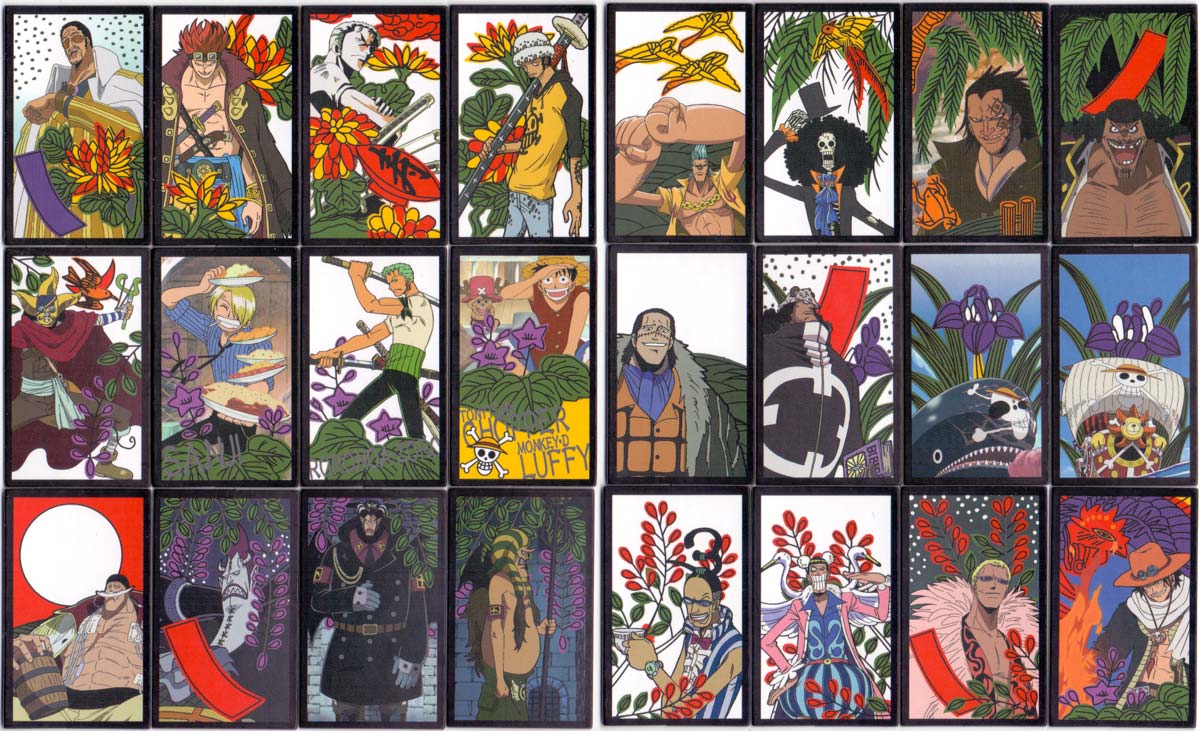
Hanafuda - 花札, translated as 'flowers cards' - is a traditional japanese playing cards. It has 48 cards divided into 12 months of the japanese calendar. Each month features a floral theme and symbols proposed by the japanese nature through the seasons of a year. This playing cards is also present in Korea (hwatu) and Hawaii.
story
'Hanafuda' is a traditional Japanese card game. Now you can play Koi Koi, its most well-known variation. In Koi Koi, you compete to snatch up cards that will allow you to win by forming Yaku, or card combinations, before your opponent does. Sep 1, 2016 - Explore Misha Noneyobusiness's board 'Hanafuda', followed by 501 people on Pinterest. See more ideas about cards, game card design, mamoru hosoda. Hanafuda are playing cards from Japan. Hanafuda Hawaii Style cards are especially for the game played in Hawaii. We've made the game easy to learn and play. You will be having a great time with friends and family in no time at all. Hanafuda, (Japanese: 'flower cards'), deck of 48 cards divided into 12 suits of four cards. Each suit is named for a month of the year and pictures a flower identified with that month. The cards are tiny, only 218 by 114 inches (5.4 by 3.2 cm), but about three times thicker than Western cards. ENSKY Kirby's Dream Land Hanafuda Japanese Playing Cards gift Japanese traditional Nintendo. From shop LivingInTokyo. 5 out of 5 stars. (1,628) 1,628 reviews. Only 3 available and it's in 11 people's carts.
Hanafuda Cards
The origins of Hanafuda come from the 16th century when a portuguese missionary and his team brought a deck of 48 playing cards in Japan, Hombre, a card game from Spain. The japanese playing cards was only allowed among the nobility, therefore the portuguese game became quickly popular among the japanese lower class.

Hanafuda - 花札, translated as 'flowers cards' - is a traditional japanese playing cards. It has 48 cards divided into 12 months of the japanese calendar. Each month features a floral theme and symbols proposed by the japanese nature through the seasons of a year. This playing cards is also present in Korea (hwatu) and Hawaii.
story
'Hanafuda' is a traditional Japanese card game. Now you can play Koi Koi, its most well-known variation. In Koi Koi, you compete to snatch up cards that will allow you to win by forming Yaku, or card combinations, before your opponent does. Sep 1, 2016 - Explore Misha Noneyobusiness's board 'Hanafuda', followed by 501 people on Pinterest. See more ideas about cards, game card design, mamoru hosoda. Hanafuda are playing cards from Japan. Hanafuda Hawaii Style cards are especially for the game played in Hawaii. We've made the game easy to learn and play. You will be having a great time with friends and family in no time at all. Hanafuda, (Japanese: 'flower cards'), deck of 48 cards divided into 12 suits of four cards. Each suit is named for a month of the year and pictures a flower identified with that month. The cards are tiny, only 218 by 114 inches (5.4 by 3.2 cm), but about three times thicker than Western cards. ENSKY Kirby's Dream Land Hanafuda Japanese Playing Cards gift Japanese traditional Nintendo. From shop LivingInTokyo. 5 out of 5 stars. (1,628) 1,628 reviews. Only 3 available and it's in 11 people's carts.
Hanafuda Cards
The origins of Hanafuda come from the 16th century when a portuguese missionary and his team brought a deck of 48 playing cards in Japan, Hombre, a card game from Spain. The japanese playing cards was only allowed among the nobility, therefore the portuguese game became quickly popular among the japanese lower class.
When Japan closed its borders, all foreign card games were banned. Therefore, several playing cards were created: a deck of 75 cards inspired by chinese warrior art and several decks of 48 cards that are close to the modern Hanafuda. Fallen into the hands of the japanese mafia, they were successively banned by the government because these cards were mainly used for gambling.
Following the change of government, Meiji, Japan opened its borders to the world and the playing cards was proclamed lawful again. In 1889, Fusajirô Yamauchi seized the opportunity and founded the Nintendo Koppai company to commercialize the card game Hanafuda. Quickly adopted by the Yakuza as gambling, the Hanafuda also became popular with the public.
Today, Hanafuda are playing in Japan, Korea and Hawaii, each with their own rules. In Japan, Nintendo still produces three versions of Hanafuda who differ in their quality of production: Napoleon deck, Tengu deck and the flower deck. There are also some Hanafuda deck created for the most popular licenses: Mario, Star Wars, One Piece ...
minimize